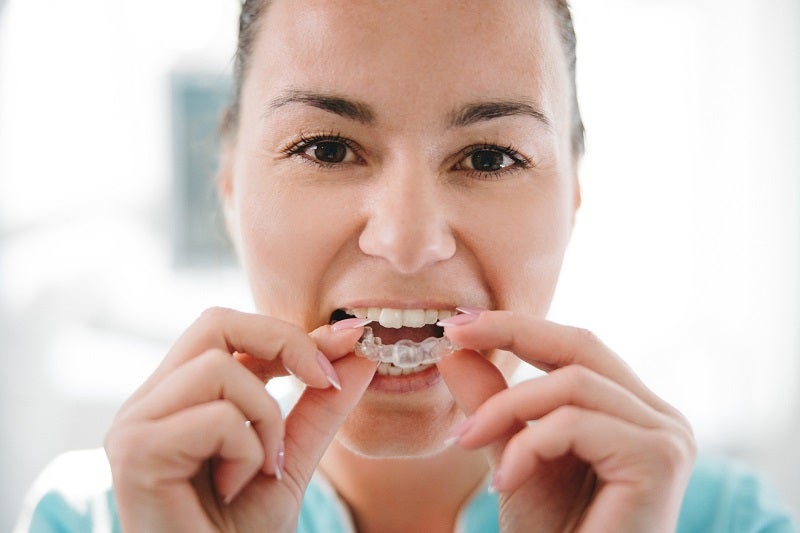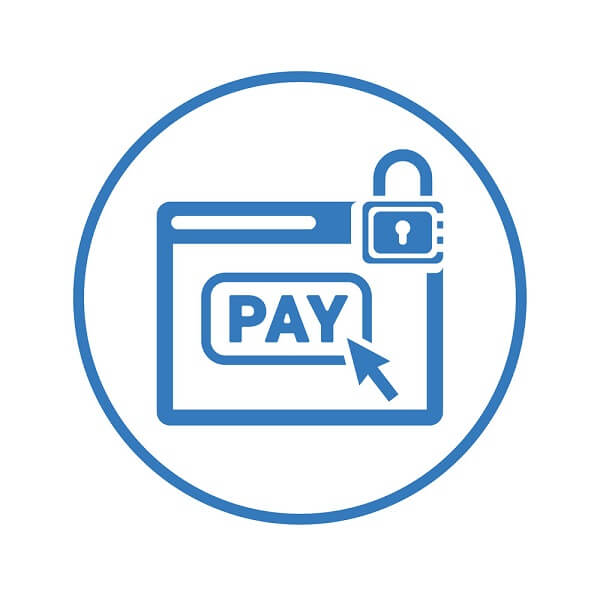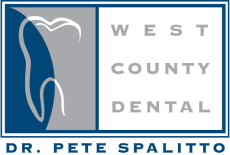The Link Between Snoring, Sleep Apnea & Teeth Grinding

What do snoring, sleep apnea, and teeth grinding have in common? They are all mouth-related health problems that occur when you’re asleep. Because you can’t perceive many of the symptoms while sleeping, you may be unaware of the problem. Fortunately, a properly trained dentist can treat snoring, sleep apnea, and teeth grinding by fitting you with the appropriate mouth guard.
Sleep Apnea is a Risk Factor for Snoring
Occasional snoring isn’t a cause for concern. It may happen if you have a cold, sinus infection, or a few alcoholic drinks before bed. However, if you often snore so loudly that you disturb your partner’s rest or wake up struggling to breathe, you should take the problem seriously. After all, it could mean you have obstructive sleep apnea.
During sleep, your throat muscles soften and your tongue relaxes, narrowing your airway. The narrower this passage becomes, the more likely you are to snore. If the walls of the throat collapse completely, you may stop breathing for several seconds. Your body then forces you to wake up momentarily so you’ll take a breath.
Some people have dozens or even hundreds of sleep apnea episodes per night, with no memory of them in the morning. In addition to snoring, watch for other daytime symptoms, such as morning headaches, daytime sleepiness, difficulty concentrating, and irritability.
Sleep Apnea is a Risk Factor for Teeth Grinding
Nighttime teeth grinding, also known as bruxism, involves repetitive jaw-muscle activity during sleep. This causes the teeth to clench or grind together. Your partner may bring up concerns after hearing the sound of your teeth grinding together as you sleep.
Bruxism has many risk factors, including misaligned bite, poor health habits, and stress. Sleep apnea is another risk factor because the pauses in breath can cause episodes of teeth grinding. As a result, one in four teeth grinders also suffers from sleep apnea.
In some cases, the relationship is reversed, with bruxism contributing to sleep apnea. After all, the muscles that initiate teeth grinding can also increase airway restriction. If left unaddressed, teeth grinding can cause morning headaches and jaw pain, tooth decay, gum disease, chipped teeth, and difficulty sleeping.
Treatment Options for Sleep Apnea and Teeth Grinding
While sleep apnea and teeth grinding can occur independently, they are closely related conditions. This means if you treat one problem, the other may improve as well.
Some people immediately pursue a continuous positive airway pressure (CPAP) machine to help them breathe at night. While effective at treating sleep apnea and co-occurring bruxism, this device is cumbersome and uncomfortable for many users. That’s why you may want to try a mouth guard first.
Dr. Pete Spalitto at West County Dental can fit you for a custom mouth guard, either aimed at treating bruxism or sleep apnea, depending on your needs. Contact our St. Louis dentist office at (314) 488-2921, and we’ll guide you toward the proper diagnosis so you can begin treatment. With our help, we’ll gently and effectively restore your sleep and protect your health!
RECENT POSTS
categories
- Uncategorized
- crowns
- dental veneers
- dentists
- full service dental practice
- porcelain veneers
- same day crowns
- Dental Cosmetic Surgery
- Dental Implants
- Dentistry
- Dentist Review
- Laser Dentistry
- Root Canal
- Sedation Dentistry
- Dentures
- Cleanings
- Teeth Whitening
- Abscessed Teeth
- Cosmetic Dentistry
- Infographic
- Cavities
- Sealants
- Gum Recession
- Periodontal Disease
- Dental Health
- Family Dentistry
- Dental Emergency
- Invisalign
- Filling
- Same Day Dental Procedures
- Gum disease
- Sleep Apnea
Archives
2022
2021
- December (2)
- November (1)
- October (3)
- September (2)
- August (2)
- July (2)
- June (2)
- May (2)
- April (2)
- March (2)
- January (2)
2020
2016
2015
- December (4)
- November (3)
- October (3)
- September (4)
- August (4)
- July (4)
- June (4)
- May (3)
- April (3)
- March (4)
- February (5)
- January (6)

